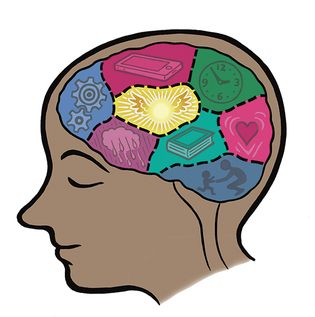 loading
loading
FindingsSpirituality and your brainScientists look for the areas that become active when we get religious.  Gregory NemecView full image“In mystic states we both become one with the Absolute and we become aware of our oneness,” writes William James in The Varieties of Religious Experience. “This is the everlasting and triumphant mystical tradition, hardly altered by differences of clime or creed.” Curious to understand what might account for this ubiquitous notion of oneness, Marc Potenza ’87, ’93PhD, ’94MD, a professor of psychiatry and neuroscience at Yale, looked inward—not in an introspective, third-eye sort of way, but using technologically sophisticated medical imaging. Through fMRI scans, Potenza and six colleagues, including first author Lisa Miller ’88, with Columbia’s Teachers College, learned what parts of the brain are most active and least active during personalized spiritual experiences. (“Spiritual” in this case was not synonymous with “religious”; it may have included, for instance, moments of overwhelming witness to the natural world or intense physical activity.) The researchers interviewed 27 young adults, gathering from each interviewee personal information related to individual spiritual, relaxing, or stressful experiences. Audiotapes based on these experiences were played back to study participants as they lay inside of an fMRI, which measures brain activity. One of the central observations during the replay of spiritual experiences was a decrease in activity in the inferior parietal lobe, a section of the brain understood to relate to our sense of self. Though speculative, the study generates an important new methodology for linking our spiritual experiences with our neurobiology. (The results were published in Cerebral Cortex.) Potenza hopes to build on this work with a larger investigation into whether different types of spiritual experience present different “neural signatures.” As an expert on addiction, Potenza also sees a potential application of the work. “Given the importance people ascribe to spirituality—not just in the day-to-day, but also in recovering from addiction, from depression—this work lays the foundation for further research into how we might help clinical populations achieve this recovery,” he says.
The comment period has expired.
|
|